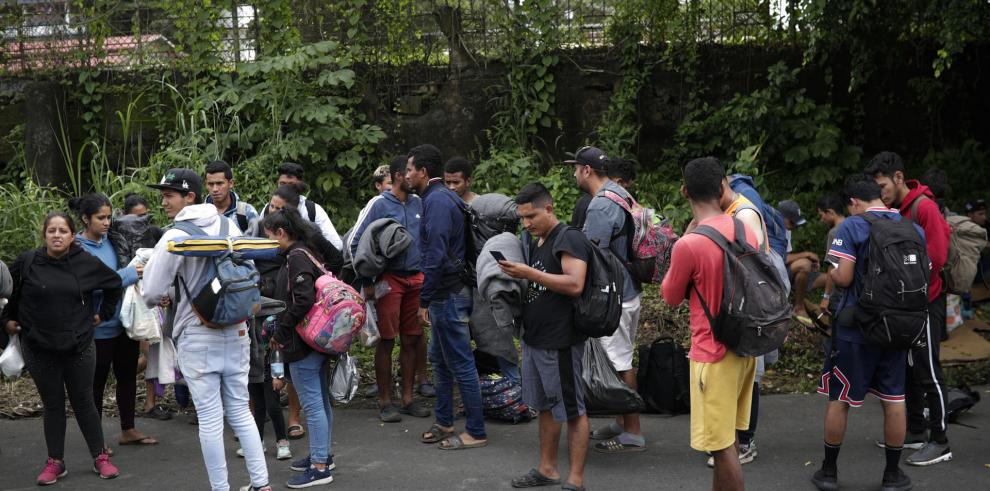UN accuses Panama of migrant abuses in Darien

Reports of sexual abuse, deprivation of liberty, and forced labor, in the Migrant Reception Stations (ERM) in Darién are in a document from the United Nations (UN), sent to the Panamanian government in December its handling of the humanitarian crisis in Darien.
The document, to which the newspaper El País had access, says the humiliations are committed by officials of the National Migration Service and the National Border Service (Senafront).
“According to these complaints, SNM and Senafront personnel would have requested sexual exchanges from women and girls housed in the ERM of San Vicente who lack the money to cover transportation costs,” says the document prepared by the special rapporteur on the human rights of migrants, Felipe González Morales. According to the text reviewed by the Spanish publication, they do so “with the promise of allowing them to get on the buses coordinated by the Panamanian authorities so that they can continue their journey to the border with Costa Rica.”
Apart from the complaints of sexual violence, there are complaints by people who perform forced labor to be able to pay the 40 dollars that the bus costs and thus leave the stations. Figures indicate that in 2022, at least 248,000 migrants crossed the dangerous jungle that separates Colombia from Panama, mostly Venezuelans, Ecuadorians and Haitians. These people were subjected to dangers such as assaults, disappearances, and sexual violence at the hands of armed groups. In 2021, more than 300 cases of sexual abuse were registered; and between January and June 2022, there were more than 140 cases during the tour. Upon reaching Panamanian territory and, after avoiding death on the way, the migrants are housed in the ERM, which is supervised by the National Migration Service and the National Border Service (Senafront). But it is right there where, according to the UN report, they are “de facto deprived of their liberty, since they are not authorized to leave these centers, except to be transferred by the Panamanian authorities to the border with Costa Rica.”
The UN report details that there are cases of families detained for more than 3 months in the stations due to a lack of documents, including birth certificates that prove the relationship between parents and children, as well as delays in the identification processes by the Panamanian authorities. “People seeking asylum in Panama would also not be allowed to leave the MREs until the end of the procedure, which can reportedly take several months,” it says. “We would like to express our concern in particular regarding the allegations that boys and girls are also detained in the MREs,” she adds. In addition, the UN ensures that it does not “prejudge” and warns the Government of Panama that “if confirmed, the situations described would constitute violations of the human rights of migrants.” It also reminds you that the precarious conditions reported in the Migrant Reception Stations “may amount to cruel, inhuman or degrading treatment and may lead to violations of the rights to life and personal integrity. “The organization gave the Government a period of 60 days to respond to the complaints. They were fulfilled on Thursday, February 9. The document, according to El País, is dated December but has not been made public.





